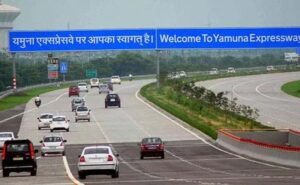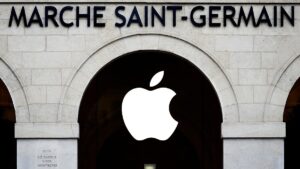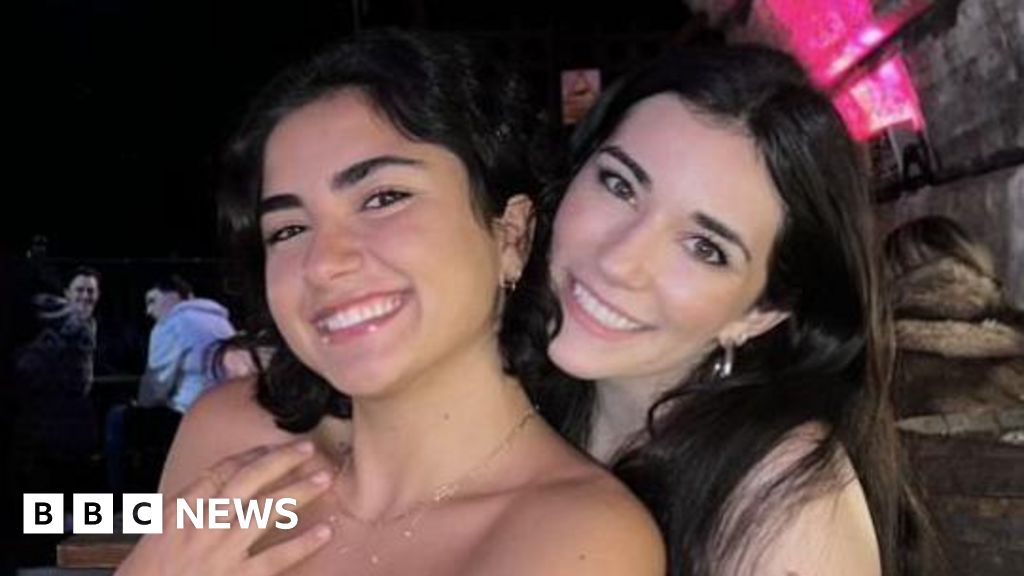
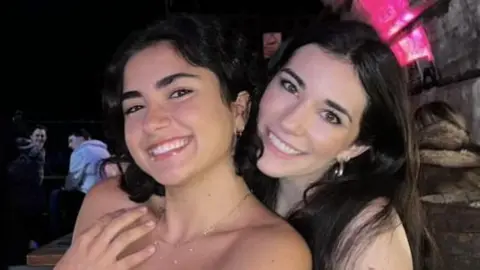 DWAS
DWASLast year, Juliette Sartori decided she wanted to expand her social circle, so she went on a coffee date with three people she had never met before.
“It went really well,” she said.
“We ended up speaking for two hours and I still speak to them today. We all keep in touch.”
Her friendship blind date was part of Dinner with a Stranger, the society Juliette and her flatmates started “on a whim” for fellow Glasgow University students who want to meet new people.
Juliette, 21, had moved to Scotland from the US to study business and management and said it was harder to instantly connect with others as she found people “had a wall up” and were closed off.
With students so plugged in and digital that they spend less time interacting with each other face-to-face, she didn’t have many opportunities to increase her circle of friends.
And so Dinner with a Stranger was born.
“We thought originally only 30 people would join,” Juliette says. “We just didn’t know what to expect.
“It’s an out-there idea and the name throws people off from the start.”
But 200 people – a mixture of undergraduate and postgraduate male, female and non-binary students – signed up in the first month and the society has continued to grow ever since.
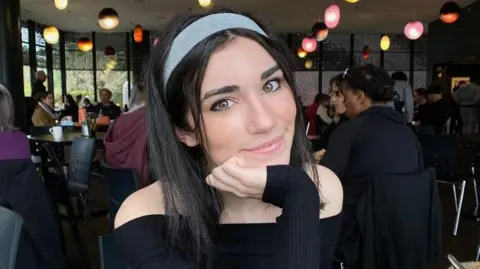 DWAS
DWASJuliette’s friendship lottery is very different to the swipe right culture of the dating apps which dominate the lives of many young people.
Firstly, it is about friendship and not romantic hook-ups. But it is also avoids complicated computer algorithms and relies instead on more traditional personality quizzes shared with members online at the start of every month.
Prospective mate-dates are asked questions on a theme, ranging from their favourite music genre or most-loved Disney movie to their dream holiday destination.
Then Juliette and five others spend hours manually pairing people up and sharing contact details before taking a step back to let the magic happen.
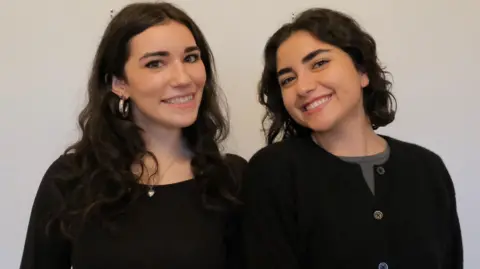 DWAS
DWAS‘People are lonelier now’
Playing platonic Cupid alongside Juliette, Mary Yiorkadji quickly realised she wasn’t alone in struggling to find friends at university.
Originally from Cyprus, she says: “There are lots of people from different backgrounds and it can be really intimidating feeling like you’re different and people won’t understand you.”
The 22-year-old believes social media has had a negative impact on friendships.
It comes as more and more people nowadays compare their lives to others online.
“It is really easy to get caught up in fake ideas from social media, which can cause loneliness and expectations that are never met,” Mary says.
“People are lonelier now. Our generation is lonelier.”
But Mary says Dinner with a Stranger has introduced her to the beauty of the blind friendship date.
“I think one of the most important parts of university is to meet new people,” says the fourth-year economics and philosophy student.
“In this way you don’t give power to the differences between people, you give power to things that matter in a friendship, which are the similarities you have.”
She describes it as a “unique” way to meet and connect with others from all over the world.
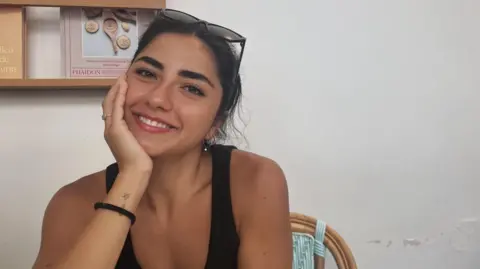 DWAS
DWASFrom friendship lottery to flatmates
Second-year students Vanya and Hannah, who were paired up by Dinner with a Stranger in December last year, believe they would not have met each other if it wasn’t for the group.
Hannah, 20, from Manchester, says: “Society puts so much emphasis on romance that we forget how important friendships are.”
She says before meeting Vanya she was “miserable” and would spend a lot of time by herself, but now her mental health has improved and she is more confident.
The pair are now best friends and flatmates.
Vanya, 19, says she enjoyed getting to know Hannah without “pre-conceived ideas and expectations”.
“People are talking to so many people online that they’re not properly talking to anyone,” says the economics student, originally from India.
“In this way, you’re going in with a completely open mind and you’re getting to know someone as the conversation moves along.
“You have to show that you’re making a genuine effort.”
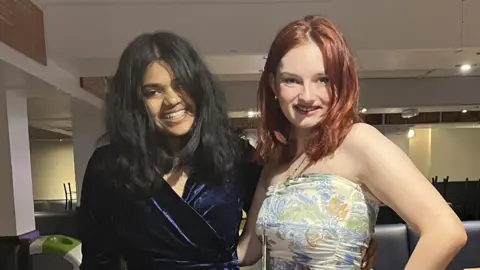 DWAS
DWASThe future of the ‘fun experiment’
For Juliette, going on friendship dates with strangers has helped her to find her “people”.
Confused as to why people think it is not normal to go on friendship dates to meet new people, she believes soon there will be more opportunities to take part in this “fun experiment”.
She said: “It’s more of a modern way of making friends.
“It’s taking the idea of meeting someone online from a dating website and turning it into friendships by seeing how well you mesh with that person.”
Dating apps, such as Bumble, have already started to create similar versions for friendship-making, which Juliette thinks will become more mainstream as the idea expands.
She said: “Now people are working from home and doing uni remotely, it is more common for people to stay at home all the time and you are less likely to go out and meet new people like you would have done five years ago.
“It’s modern but I think it will become more popular in the future.”



